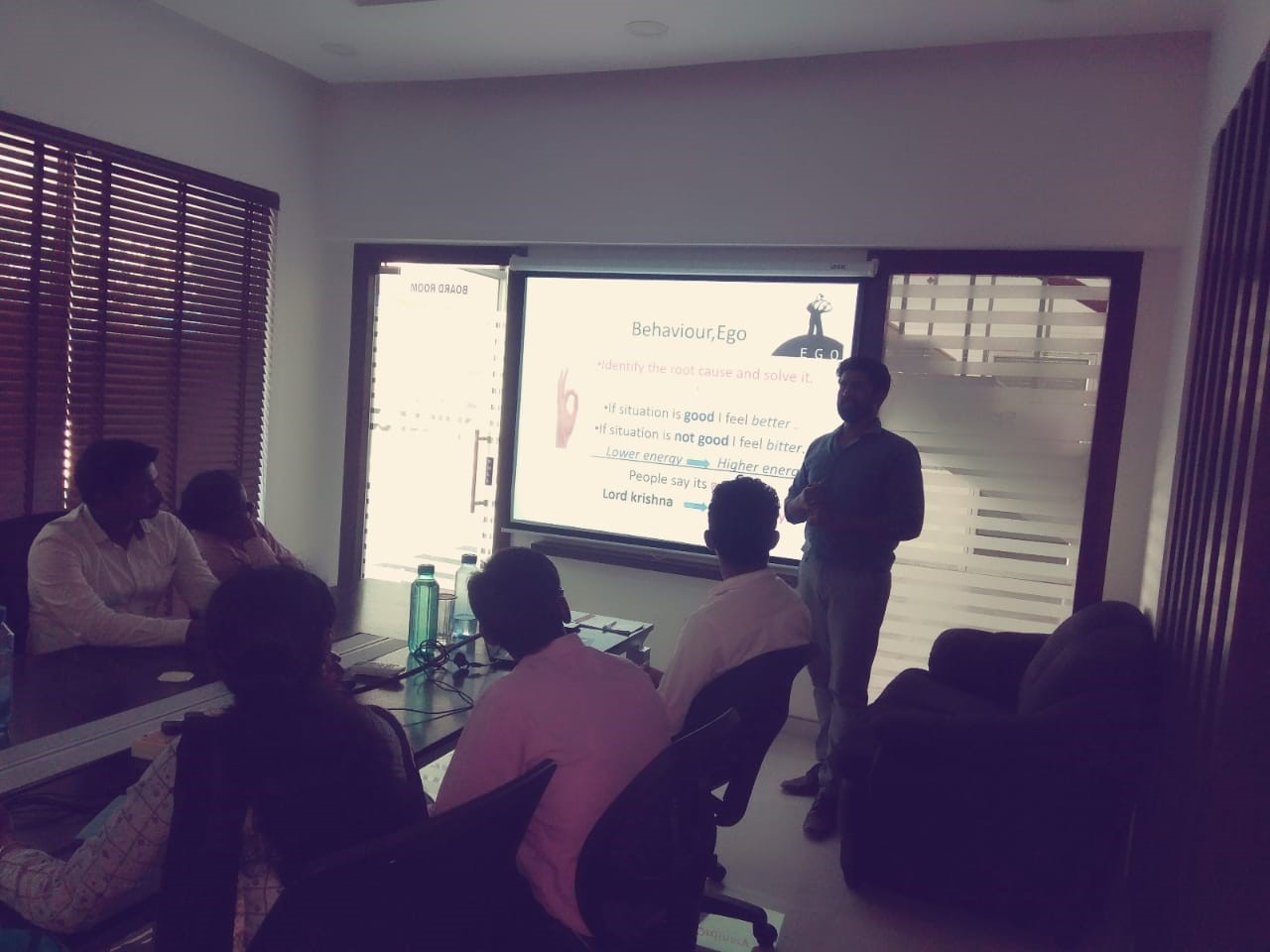A workshop on Emotional Intelligence held recently for SPICTRA employees received an enthusiastic response from participants.
In the past decade, Emotional Quotient (EQ) has been recognized as being as important as Intelligence Quotient (IQ) – both from an employee and organizational performance perspective. At AM International and its operating companies, it goes well with our people philosophy of employee care, work-life balance, and doing things in the right manner. We recognize that an emotionally intelligent work environment produces better leaders, fosters stronger bonds, and creates higher levels of work satisfaction among employees.
So what exactly is Emotional Intelligence (EI) or Emotional Quotient? It is that aspect of human behaviour that makes a person handle (react to) any situation, especially, strenuous ones, with a calm and balanced approach. It is an intangible yet measurable aspect of human workplace behaviour. Today, EI is an essential aspect of our professional identity; leaders across professions, be it business, politics or any other role in society demonstrate high levels of EQ. As organizations globally face competition and disruption, only the ones with high EQ levels are likely to survive.
An employee with good EI will always look for solutions rather than playing the blame-game in a situation gone wrong. Such people believe in team work and choose to encourage colleagues than being rude and hostile. The ability to visualize the larger picture and goal and work towards it in a disciplined yet focussed manner, instead of getting carried away in daily routine work is a key characteristic of such a person. Bosses who are able to give objective (dispassionate) feedback to juniors yet at the same time not be demoralizing or finger pointing show high EI.
Can EI be taught in classrooms?
SPICTRA is part of our healthcare science vertical and manufactures high end mission-critical medical devices that are used by the doctor and hospital fraternity during life-saving surgeries in operating theatres. Our young and enthusiastic HR colleague, R Naresharvind conducted one such workshop at the MM Nagar Plant in Chennai, Tamil Nadu and witnessed enthusiastic participation by employees. The workshop was a part of the personality development program for middle-level employees. We believe that such initiatives help in shaping future leaders.

During the training, employees were guided to become more responsive and positive in their approach to emotional situations. An alert state of mind and positive lookout go a long way in enhancing the quality of their work life.
Now we come to the oft-asked question, Can EI be taught in classrooms and workshops or is it natural human trait? Research has shown that every human being (brain) has a certain level of EI. However, such initiatives help in making an employee aware of each person’s emotional quotient in a better manner. For example, the workshop aimed to help employees manage their emotions during difficult circumstances. Further, it had tips to keep calm in high-pressure situations, maintaining healthy interpersonal and intrapersonal relationships, and sustaining an optimistic outlook even under the most challenging circumstances.
At AM International, we believe, every employee is inherently a good human being. However, in today’s complex work environment, regular training to enhance and sharpen such ‘soft’ skills, along with professional competencies, goes a long way in creating a ‘happy’ and hence, productive work culture. Stressful situations like crises, emergencies or everyday events such as an unsatisfied customer, absent colleague or missed sales targets are bound to happen. The approach to handling such cases will define successful professionals and their organizations. Proper analysis, guidance by experienced seniors and oodles of positivity, determination and a will to win can help us scale the highest peaks. On the contrary, any hot-headed response, careless and complacent attitude or negativity can snowball a small mistake into a major crisis.
Emotional Intelligence leads to a better quality of work-life and creates a happy organization
Another misconstruction of EI is that it is only meant for senior leaders or when taking critical organizational decisions. We believe that sharpening EI is vital for every employee, including interns, freshers and middle-level team members. Employees with high EQ, across all levels, will be able to contribute better to the organization’s goal. By extension, such training will enable them to become more evolved individuals, both at work and at home.
At the end of the workshop, the participants were better prepared to take on the challenges at work as well as in their personal lives.
